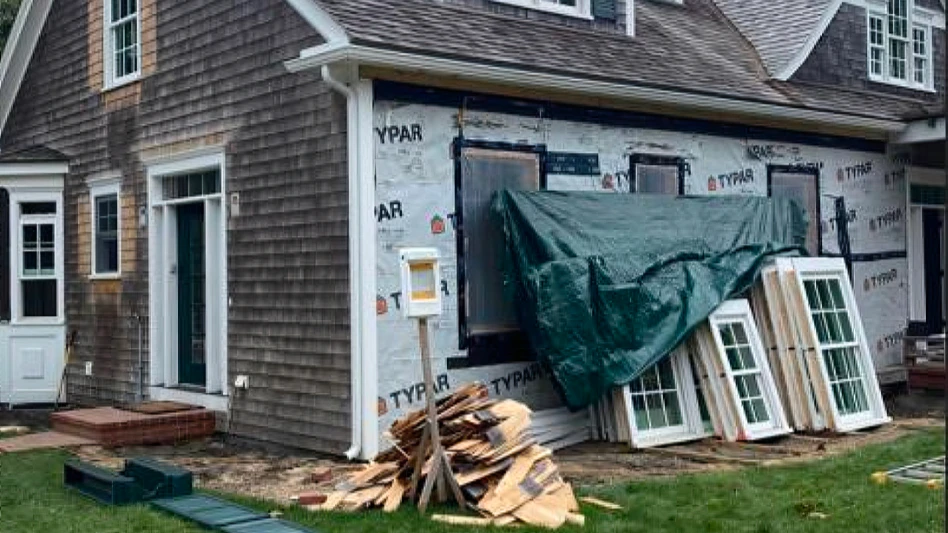
Photo courtesy of the Center for EcoTechnology
A team of 10 organizations have partnered to deconstruct a home located on Martha’s Vineyard, Massachusetts, diverting more than 10 tons of materials from landfill.
This Martha’s Vineyard Deconstruction Pilot establishes a model for streamlining the recovery of residential building materials through reuse, resale and recycling, says the Center for EcoTechnology (CET), Northampton, Massachusetts, in its report on the project. Various organizations came together to educate stakeholders about the benefits of deconstruction, coordinate the collection of materials from the job site, provide documentation for leveraging tax incentives and aggregate the recovered materials for reuse locally and for sale through CET’s reclaimed building materials store, EcoBuilding Bargains.
The following items were targeted by this pilot effort: film plastics, food scraps, gypsum wallboard, metal, mixed recycling, stone, wood and other building materials.
RELATED: Cornell study compares demolition vs deconstruction | Pittsburgh to preserve communities through deconstruction
Partners in the project include CET, Martha’s Vineyard Vision Fellowship, South Mountain Co., EcoBuilding Bargains, RecyclingWorks, Waste Not Inc., The Green Mission Inc., Carroll’s Martha’s Vineyard, Bruno’s and Martha’s Vineyard Film Festival.
CET, South Mountain Co., West Tisbury, Massachusetts; and Martha’s Vineyard Vision Fellowship, Vineyard Haven, Massachusetts, spearheaded the effort and developed partnerships, goals and contracts for the project, says CET.
Over a three-month period from September through November 2022, the team recycled about 7 tons of mixed construction and demolition (C&D) materials from 6 Nora Lane, Edgartown, Massachusetts, CET says.
The project recycled a total of 1.335 tons of materials, including film plastics, food waste, gypsum wallboard, metals, mixed recycling (paper, cardboard, glass, aluminum cans, and plastic bottles) and wood. Another 8.8 tons of materials were slated for reuse, including wood, building materials and stone, CET reports.
During deconstruction, 415 individual items were recovered for resale spanning 15 categories. The materials represent approximately 7 tons of materials with a resale value of $47,745 and will save 15.3 tons of carbon dioxide equivalents associated with avoided manufacturing. The appraised value of donated items is $116,145, CET says.
CET says 7 tons of mixed C&D materials could not be recycled and were disposed of in a mainland landfill. This represents the best opportunity for raising the recycling rate on similar deconstruction projects in the future on Martha’s Vineyard.
Also, Massachusetts bans landfill disposal of several materials, including gypsum, C&D materials, white goods, such as appliances, mattresses, textiles and more. In some cases, materials are sent out of state for processing. For example, C&D processors throughout Massachusetts receive source separated loads of gypsum and send it to a recycler in Pennsylvania, says CET. Instead, CET says the island could consider setting up a recycling program at the transfer station. For example, wallboard can be de-papered and pulverized and added to soil to boost calcium content.
The recycling rate for the project was 59 percent, which is better than the 50 percent national target rate recycling rate.





